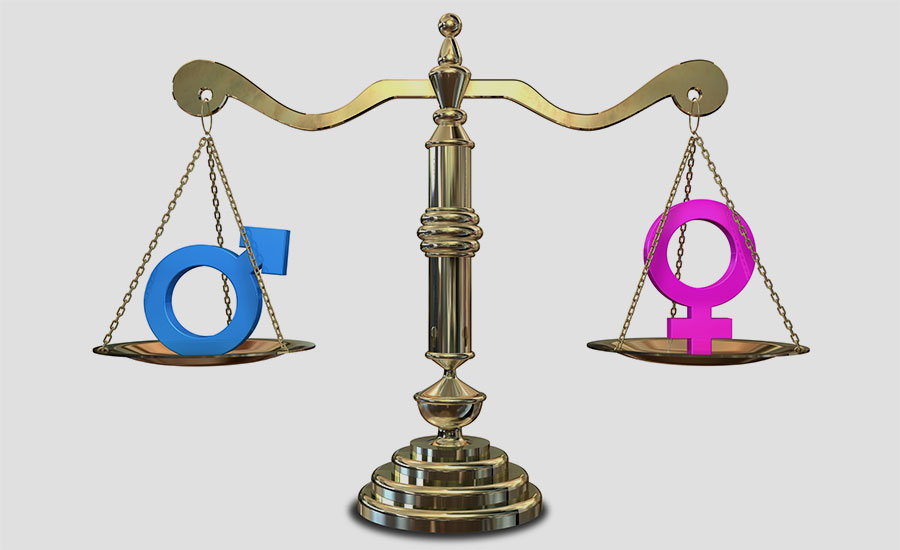The U.S. Supreme Court moved quickly in its new term in early October to hear oral arguments in three consolidated sexual orientation and gender identity workplace bias cases on which lower courts differed, but it likely won't decide until early summer 2020 how—or whether—to change federal law, for the first time, to extend protections nationwide.
Advocates are hopeful justices will move to ban explicit discrimination against LGBTQ employees in the workplace by adding gender identity and sexual orientation to sex bias already banned under Title VII of the 1964 Civil Rights Act.
The U.S. Equal Employment Opportunity Commission has already recognized sex-bias complaints based on sexual orientation and gender identity, and states and cities have adopted and strengthened their own anti-bias laws over the years, but workers in about half of the U.S. remain without legal protection for those types of workplace bias.
“The fact that it was not clear if Title VII covered sexual orientation and gender identity has not stopped individuals from bringing lawsuits, although the uncertainty of whether their claim would be recognized as coverable has kept the number of lawsuits down,” says Diana Plue, senior associate at Sheats & Bailey PLLC, a Liverpool, N.Y., law firm with employment and construction concentrations.
"Some employers voluntarily elect to implement policies that assure inclusive and non-discriminatory environments for LGBTQ employees even though their states do not require it," adds Andrea Woods, corporate counsel for Conway, Ark.-based Nabholz Construction. “Employers who are not prepared to address this additional exposure will open themselves up to higher risk of claims and lawsuits.
She says that even with federal legal protection the Title VII change would bring, she contends that EEOC’s mediation process may remain "a less intimidating environment for claimants" and be preferred by employers as a "more secure and confidential."
Even as the Trump Administration argued to the high court the government's opposition to Title VII expansion, it added to the 2018 federal tax reform law a ban on employer tax deductions for sexual harassment settlements paid.
|
Related Article |
Most predictions of how the current politically divided court will rule are unclear, with justices questioning Congress’ original intent or concerned about employers’ First Amendment rights relating to religious objection to sexual orientation. Some predict the court will rule that Title VII transgender coverage is up to Congress; others see Justice Neil Gorsuch as the swing vote for full protection.
Meanwhile, after the House passed legislation last spring to codify workplace protections for LGBTQ individuals, a Utah House Republican introduced on Dec. 6 a bill to extend similarprotections—but with a religious-conviction exemption for organizations and private employers. Such an exemption also is included in a pending U.S. Labor Dept. proposal that could shield “religion-exercising” federal contractors from bias claims for workplace actions.
Attorneys point to growing state and municipal protections, with anti-bias ordinances now in 24 states and 225 cities and counties—and laws being expanded to reflect new protections.
“The failure of Title VII to recognize LGBTQ claims has kept most of the litigation at the state and city level,” says Laurent Drogin, partner in New York City law firm Tarter, Krinsky & Drogin. The state’s legal protection dates to 2003. “It is not clear that New Yorkers will obtain more benefits if they can sue under federal law … because remedies under state and local laws are broader.” He notes that the state and New York City have removed certain defenses that are still existant under Title VII such as the requirement that harassment be "severe or pervasive."
For employers, “this is a quickly changing legal area, so they should ask themselves if they’re willing to be the ‘test-case’ for changing the law in their jurisdiction should a member of the LGBTQ community challenge a discriminatory or harassing practice,” says Erin Ebeler-Rolf, a Lincoln, Neb., construction law firm partner, who adds that failing to add protections for LGBTQ employees and applicants could create “a marketplace disadvantage" with clients and workforce recruits.
She and Nabholz's Woods will be outlining the changing legal environment related to LGBTQ workplace issues at a Jan. 15 session oft the American Bar Association Forum on Construction Law’s mid-winter meeting in Tucson, Ariz.
Plue notes that one of her “really proactive” clients implemented as part of its anti-bias program a policy “to assist employees who transition from one sex to a different sex.” This includes, among other things, access to restrooms and changing rooms during the transition period.





